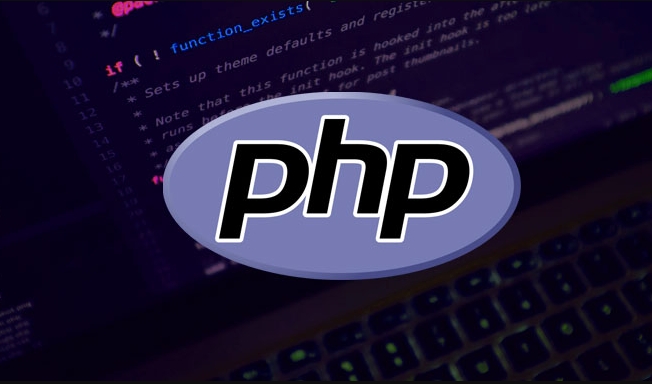A pure function in PHP is a function that always returns the same output for the same input and has no side effects. 1. It must produce consistent output based on input alone. 2. It must not modify or depend on external state such as global variables, files, or databases. 3. It should have no hidden dependencies or observable side effects. Pure functions improve predictability, testability, and maintainability of code and are ideal for utility functions, calculations, and transformations. Examples include formatting currency, converting strings to slugs, and array operations like mapping or filtering. Impure functions may access global variables, perform I/O operations, use random or time functions, or trigger events, all of which introduce unpredictability and complicate testing and debugging.

A pure function in PHP is a function that, given the same input, will always return the same output and has no side effects. That means it doesn’t modify any external state — like global variables, files, or databases — and doesn’t rely on or change anything outside its own scope.

Why purity matters
Pure functions are important because they make your code more predictable, easier to test, and simpler to debug. Since they don’t depend on or alter external data, you can reason about them independently of the rest of your application.

For example:
function add(int $a, int $b): int {
return $a $b;
}This add function is pure. It only uses its inputs and returns a consistent result every time.

On the other hand:
$factor = 2;
function multiplyWithGlobal(int $a): int {
global $factor;
return $a * $factor;
}This one isn't pure because it relies on a global variable, which could change elsewhere in your code and affect the function's behavior.
Characteristics of a pure function
- Consistent output: Same input → same output
- No side effects: Doesn’t modify external state (globals, I/O, etc.)
- No hidden dependencies: Only uses what’s passed into it
These traits make pure functions ideal for reusable logic and functional programming patterns.
When to use pure functions
You don’t have to make every function pure, but using them where appropriate can improve your code quality. They’re especially useful when:
- Writing utility/helper functions
- Doing calculations or transformations
- Creating functions used in testing or caching
For instance, formatting a date based on input or converting an array to JSON are good candidates for pure functions.
Some real-world examples:
- A function that formats currency
- One that converts strings to slugs
- Any mapping or filtering operation on arrays
Side effects to watch out for
Even if a function looks simple, it might still be impure. Common red flags include:
- Accessing or modifying global variables (
global,$GLOBALS) - Reading from or writing to a file/database/session
- Using
rand()ortime()(because they produce different results) - Triggering events or logging inside the function
Avoiding these keeps your function clean and predictable.
That’s basically it. Pure functions aren’t a strict rule in PHP, but recognizing them — and knowing when to use them — helps write better, more maintainable code.
The above is the detailed content of What is a pure function in the context of PHP?. For more information, please follow other related articles on the PHP Chinese website!

Hot AI Tools

Undress AI Tool
Undress images for free

Undresser.AI Undress
AI-powered app for creating realistic nude photos

AI Clothes Remover
Online AI tool for removing clothes from photos.

Clothoff.io
AI clothes remover

Video Face Swap
Swap faces in any video effortlessly with our completely free AI face swap tool!

Hot Article

Hot Tools

Notepad++7.3.1
Easy-to-use and free code editor

SublimeText3 Chinese version
Chinese version, very easy to use

Zend Studio 13.0.1
Powerful PHP integrated development environment

Dreamweaver CS6
Visual web development tools

SublimeText3 Mac version
God-level code editing software (SublimeText3)

Hot Topics
 How do I implement authentication and authorization in PHP?
Jun 20, 2025 am 01:03 AM
How do I implement authentication and authorization in PHP?
Jun 20, 2025 am 01:03 AM
TosecurelyhandleauthenticationandauthorizationinPHP,followthesesteps:1.Alwayshashpasswordswithpassword_hash()andverifyusingpassword_verify(),usepreparedstatementstopreventSQLinjection,andstoreuserdatain$_SESSIONafterlogin.2.Implementrole-basedaccessc
 How do I stay up-to-date with the latest PHP developments and best practices?
Jun 23, 2025 am 12:56 AM
How do I stay up-to-date with the latest PHP developments and best practices?
Jun 23, 2025 am 12:56 AM
TostaycurrentwithPHPdevelopmentsandbestpractices,followkeynewssourceslikePHP.netandPHPWeekly,engagewithcommunitiesonforumsandconferences,keeptoolingupdatedandgraduallyadoptnewfeatures,andreadorcontributetoopensourceprojects.First,followreliablesource
 What is PHP, and why is it used for web development?
Jun 23, 2025 am 12:55 AM
What is PHP, and why is it used for web development?
Jun 23, 2025 am 12:55 AM
PHPbecamepopularforwebdevelopmentduetoitseaseoflearning,seamlessintegrationwithHTML,widespreadhostingsupport,andalargeecosystemincludingframeworkslikeLaravelandCMSplatformslikeWordPress.Itexcelsinhandlingformsubmissions,managingusersessions,interacti
 How to set PHP time zone?
Jun 25, 2025 am 01:00 AM
How to set PHP time zone?
Jun 25, 2025 am 01:00 AM
TosettherighttimezoneinPHP,usedate_default_timezone_set()functionatthestartofyourscriptwithavalididentifiersuchas'America/New_York'.1.Usedate_default_timezone_set()beforeanydate/timefunctions.2.Alternatively,configurethephp.inifilebysettingdate.timez
 How do I install PHP on my operating system (Windows, macOS, Linux)?
Jun 20, 2025 am 01:02 AM
How do I install PHP on my operating system (Windows, macOS, Linux)?
Jun 20, 2025 am 01:02 AM
The method of installing PHP varies from operating system to operating system. The following are the specific steps: 1. Windows users can use XAMPP to install packages or manually configure them, download XAMPP and install them, select PHP components or add PHP to environment variables; 2. macOS users can install PHP through Homebrew, run the corresponding command to install and configure the Apache server; 3. Linux users (Ubuntu/Debian) can use the APT package manager to update the source and install PHP and common extensions, and verify whether the installation is successful by creating a test file.
 How do I validate user input in PHP to ensure it meets certain criteria?
Jun 22, 2025 am 01:00 AM
How do I validate user input in PHP to ensure it meets certain criteria?
Jun 22, 2025 am 01:00 AM
TovalidateuserinputinPHP,usebuilt-invalidationfunctionslikefilter_var()andfilter_input(),applyregularexpressionsforcustomformatssuchasusernamesorphonenumbers,checkdatatypesfornumericvalueslikeageorprice,setlengthlimitsandtrimwhitespacetopreventlayout
 How do I destroy a session in PHP using session_destroy()?
Jun 20, 2025 am 01:06 AM
How do I destroy a session in PHP using session_destroy()?
Jun 20, 2025 am 01:06 AM
To completely destroy a session in PHP, you must first call session_start() to start the session, and then call session_destroy() to delete all session data. 1. First use session_start() to ensure that the session has started; 2. Then call session_destroy() to clear the session data; 3. Optional but recommended: manually unset$_SESSION array to clear global variables; 4. At the same time, delete session cookies to prevent the user from retaining the session state; 5. Finally, pay attention to redirecting the user after destruction, and avoid reusing the session variables immediately, otherwise the session needs to be restarted. Doing this will ensure that the user completely exits the system without leaving any residual information.
 What is data serialization in PHP (serialize(), unserialize())?
Jun 22, 2025 am 01:03 AM
What is data serialization in PHP (serialize(), unserialize())?
Jun 22, 2025 am 01:03 AM
ThePhpfunctionSerialize () andunserialize () AreusedtoconvertcomplexdaTastructdestoresintostoraSandaBackagain.1.Serialize () c OnvertsdatalikecarraysorobjectsraystringcontainingTypeandstructureinformation.2.unserialize () Reconstruct theoriginalatataprom






